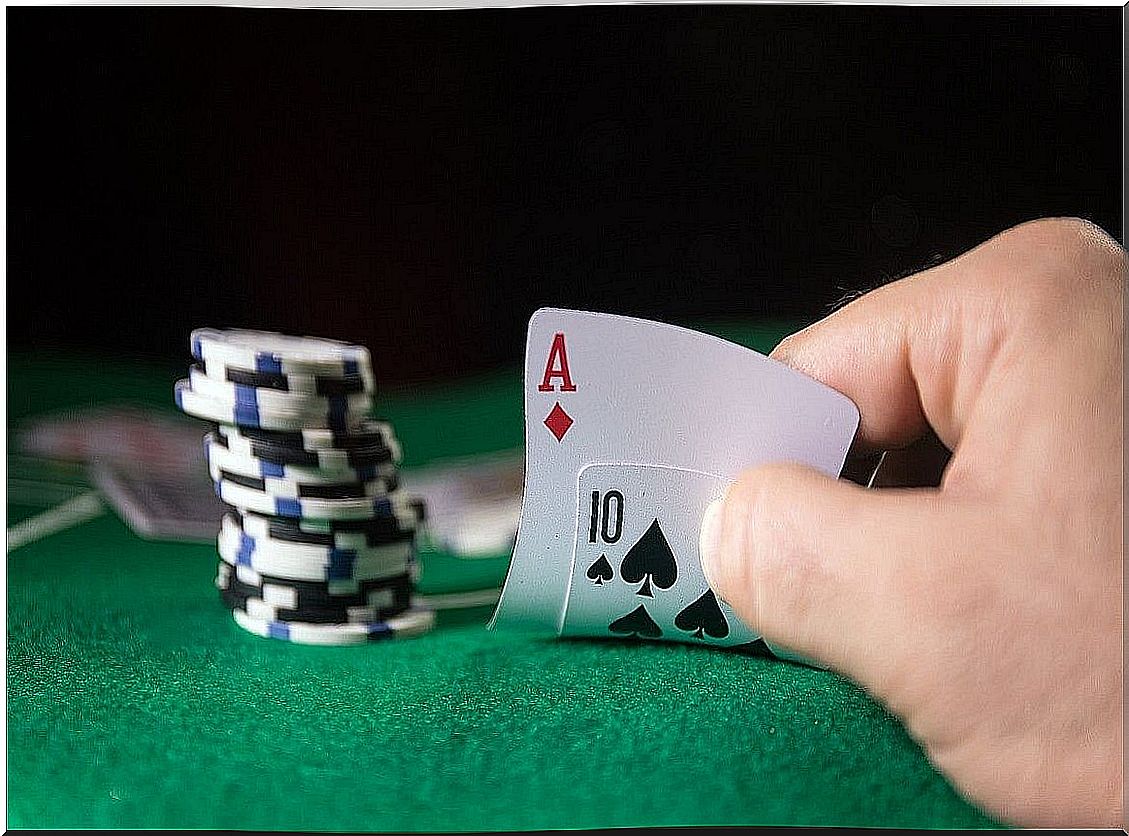How To Identify And Help A Gambler
Have you ever wondered how to identify and help a gambler? First of all, we must know that the numbers of addicts to gambling and betting have increased considerably. It is a disorder known as “gambling” that not everyone knows exists.
The gambling person is overcome by his impulses to gamble and, consequently, is involved in family, academic and professional problems. So much is their desire to gamble that they borrow money, lie, or put their relationships at risk. To learn more about it, we invite you to continue reading.
What is compulsive gambling?
Pathological gambling is also known as pathological gambling. It refers to the progressive inability of a person to resist the urge to gamble, which is why he feels a compelling need to do so. Without proper intervention, this causes a significant deterioration in the quality of your personal, professional and family life.
In fact, gamblers make gambling their lifestyle. For this reason, at present this behavior is considered a mental disorder, associated with impulse control. Still, some experts consider its characteristics to resemble those of an addiction, which is why it is also called a non-substance addiction.

Keys to identifying a gambler
According to the latest version of the Diagnostic and Statistical Manual of Mental Disorders (DSM-V) , for a person to be diagnosed as a gambler, four (or more) of the following characteristics must be met for a minimum period of one year:
- Need to gamble for money to experience the desired excitement. As the addiction develops, the amount invested in gambling is increasing.
- Nervousness and irritability when trying to decrease or quit the habit.
- Several unsuccessful attempts to control, reduce or quit the game.
- Most thoughts are directed to gambling. For example, remembering past gambling experiences, planning upcoming games, or how to get more money to play.
- Gambling to manage feelings of discomfort or discomfort.
- Bet with the aim of recovering what was lost in the game.
- Need to lie to hide the degree of involvement in the playful activity.
- Putting work, an important relationship, or an academic career at risk for gambling addiction.
- Receive financial support from close people to reduce the desperate economic situation left by gambling.
How to help a gambler?
The most effective way to help a gambler is through psychotherapy. So far, there are effective psychological interventions that have helped gambling patients overcome this addiction.
However, the abandonment of therapy and relapse are frequent in these cases, which tends to compromise the effectiveness of the treatment over time. For this reason, other factors are raised that contribute to abandoning pathological gambling. In the next space we detail other strategies.
- Understand the situation of the person and recognize that it is a process that generates discomfort and suffering.
- Communicate that she is the one who has responsibility for their actions, and that these also affect the feelings and behaviors of those around them. This communication should be done calmly, trying to convey respect and affection.
- Take your attempts to kick the habit seriously, give you encouragement and hope. This will help increase your motivation, self-commitment, and self-control.
- Try to convince him that his problem should be solved with the help of a specialist, who will provide him with the necessary tools to avoid the failure of his attempts.
- Acknowledge your progress, no matter how small.
- It is normal for the person to go through depressive phases when they realize how difficult it is to overcome the addiction. In these cases, it is important to accompany him in his discomfort and try to invite him to activities that help him feel better.
- Establish strategies that help self-control and regulation; for example, not carrying a lot of money and avoiding places that encourage gambling.
- Avoid being too insistent when giving advice to try to change their behavior. Everyone has their own pace to work and overcome problems.

Pathological gambling is a disorder of care
Pathological gambling is a disorder that can appear in both adults and very young people. Even today many teenagers are involved in gambling, due to technological developments and the facilities offered by the Internet.
In any case, it is a very careful disorder, which requires intervention by professionals and close people. Family support and psychotherapy are decisive to overcome it.








